Yam Regev (Zest) – Supporting self-learning marketers worldwide
Yam Regev is the co-founder of Zest, a knowledge-building platform for self-learning marketers worldwide. The platform is based on content sharing from its users.
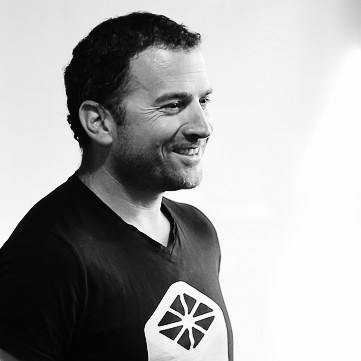
Yam Regev, co-founder @Zest.is / linkedin.com
What sets Zest apart from other knowledge-based platforms is that the suggested links are going through a multi-step content moderation process which ensures only the best content is approved.
I have only three Chrome tabs on my laptop and Zest is one of them. I discovered Zest shortly after its release in 2017 and I’ve been using it ever since. I love it! It’s my ace in the sleeve and my go-to resource for the best articles on everything marketing, SEO, branding etc.
Although very busy, Yam was kind enough to answer my questions on Zest and his entrepreneurial journey.
Enjoy!
1. Zest released a new-tab Chrome extension and now you are also releasing a knowledge-building mobile app. There are currently over 20.000 weekly active members operating around the world. How did Zest start and what is the story behind it?
Zest started as a solution to a problem that I experienced as a self-learner.
I wanted to continually improve my skills to advance my marketing career but I couldn’t spend my time taking long classes learning things that would be out of date by the time the course was completed.
I’m also dyslexic, so traditional coursework really doesn’t work well for me. I liked reading blogs and other content produced by members of my industry and I didn’t want to spend my days looking for relevant content amid all the low-quality fluff.
What I needed was a place where I could find knowledge-building content that I knew would be high-quality. I wanted the kind of content your professional peers share with you via email or through Slack–the good stuff.
But, of course, having to rely on a small circle of professional peers to deliver the content I needed to keep growing as a marketer wasn’t ideal. That’s how the idea of Zest was born. What if it wasn’t just my circle of peers, but a great community of marketing professionals from around the world who were sharing and recommending knowledge-building content: A tribe of self-learners.
That’s what Zest is. It’s a community–a tribe–of marketers who are dedicated to continually improving as professionals and are willing to share the great content they discover to help others improve too.
How did this idea become a reality? I was fortunate to have a good friend, Idan Yalovich who shared my vision. Idan is an amazing coder and one of the best tech & R&D pros in Israel. He and I co-founded Zest together and he brings the AI magic to Zest’s content discovery process.
When we first released the open alpha version of Zest we didn’t see immediate phenomenal growth. In fact, during the first few weeks, we were a little worried. But we persevered. Zest and the method of delivering content via a new-tab extension on Chrome were new.
It took our users a little time to adapt. But once they did, they continued to use the extension and told their friends about it. Product-market fit + network effects for the win! We continued to nurture that core community of users through personal outreach and by actively listening to their feedback.
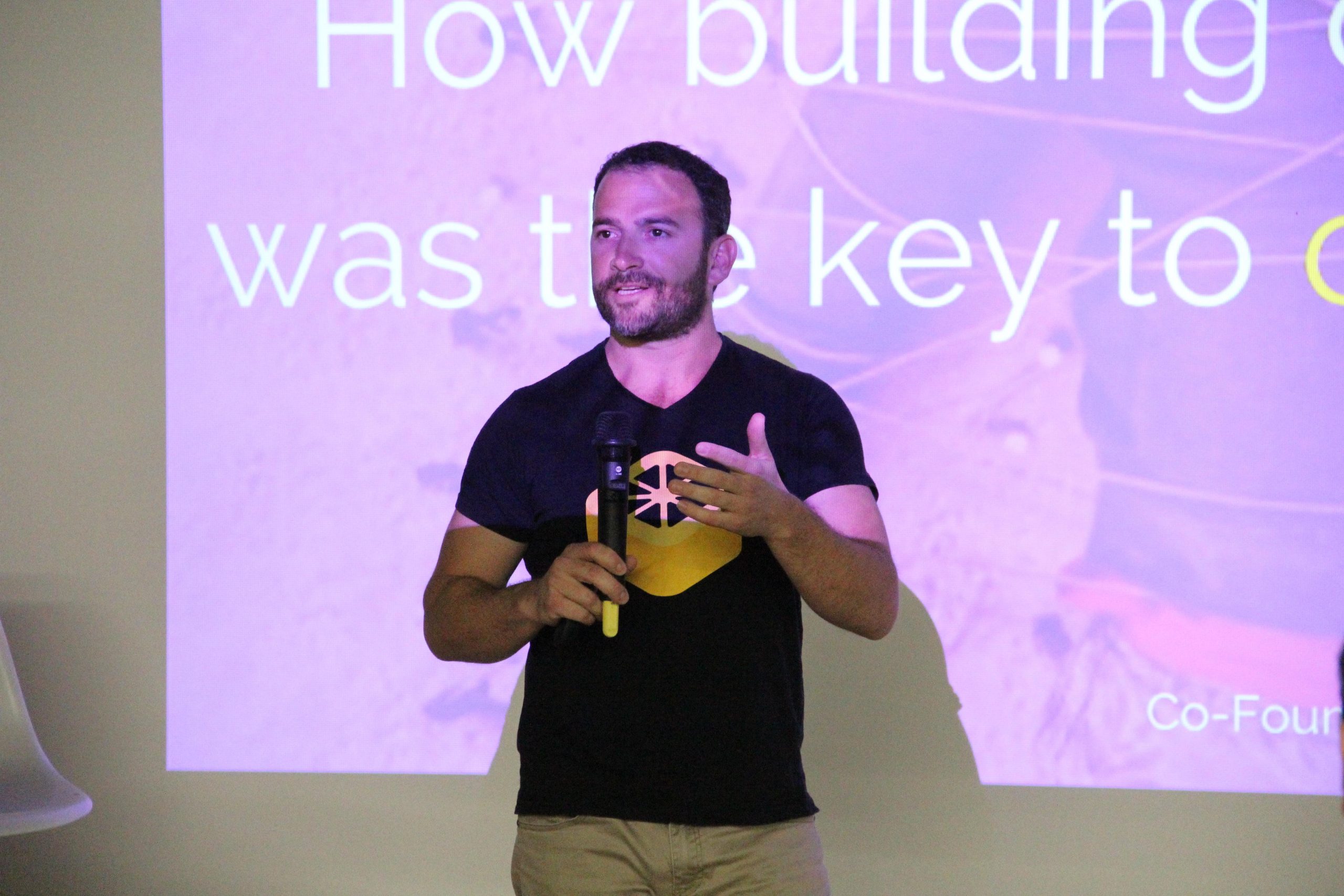
2. There are many challenges innovative startups like Zest must face. Name 3 challenges that you and your team confronted with and how you managed to overcome them.
Achieving a product-market fit is one of the first hurdles any startup must overcome. Because of our industry knowledge and discussions we had with other marketing professionals, we were relatively confident that our product will solve a problem that many of our users shared.
But, we still had a few stumbles along the way. For example, our first attempt at a newsletter performed well in terms of KPIs. People opened it, but it didn’t do what our brand promised. It didn’t add value to their personal learning journey. So, after several months, we cancelled our newsletter.
That’s not the end of the story, though. Earlier this year, we released the Zest UpSkill newsletter. This version of our newsletter was carefully tailored with product-market fit in mind. It provides each member with a personalized knowledge-building experience in the form of a weekly email. Every email includes links to content that are custom selected for the recipient. When a member of the Zest tribe opens their UpSkill, they can expect to find actionable content relevant to their marketing career.
Of course, another challenge nearly every startup will face is funding. To raise funds for Zest, we chose a slightly unusual route. In keeping with our commitment to transparency, we created an investors dashboard and invited people to have a look at our KPIs and other key information. As a result, our pre-seed funding round was able to attract investors who shared our vision.
Despite acquiring this funding, Zest is a bootstrapped startup. We have to continually balance our growth objectives with the demands of our lean structure. One of my roles is to keep a close eye on our monthly burn rate. This requires me to consider the long-term ramifications of each spending decision in addition to choosing how best to achieve our short-term goals.
Finally, founding a company doesn’t always mean that you can immediately leave your old life behind. Idan and I, like many founders, began Zest while still working full-time. But, dividing your focus when working on your startup can be fatal.
After working on Zest part-time from 2016 to 2017, I decided to make the leap to concentrating on Zest full time in late 2017. Idan took the plunge as well.
When you commit 100% to your company it sends a message to your team, your investors, and yourself:
This isn’t a dream or an idea, it is a business and we are in it to succeed.
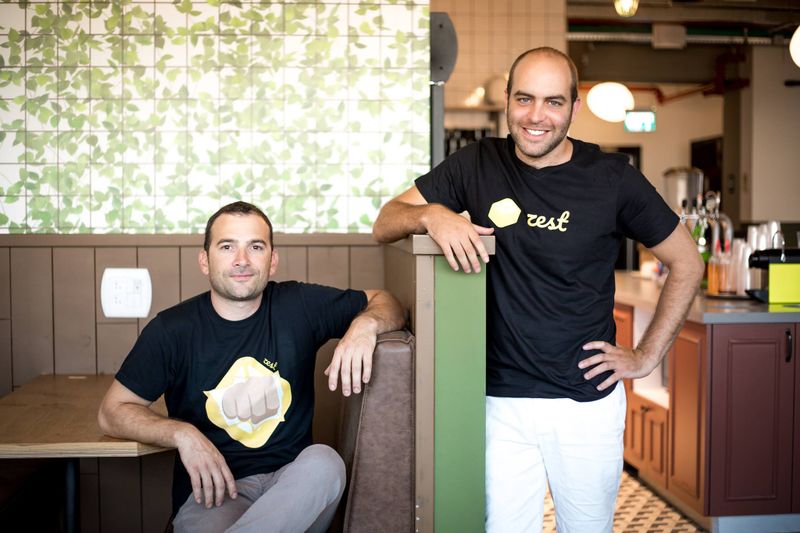
Yam Regev and Idan Yalovich, co-founders at Zest / canva.com
3. Every startup founder is looking for the best strategies to grow and scale their business. What strategies did you implement to grow and scale Zest?
One of the most important things an early startup can do is to focus intently on achieving product-market fit. The faster you can achieve product-market fit the more likely it is that your startup will survive.
I have two pieces of advice for young founders.
My advice for founders is to do things that don’t scale.
For us, that meant not using automation to reach our customers when we first launched Zest. Instead, we got close to them.
Communicate with your customers and potential customers one-on-one, ask for their feedback and gather a deep understanding of their pain points and the language they use to describe their needs. This is how you create a customer-focused product that captures the hearts and minds of your users.
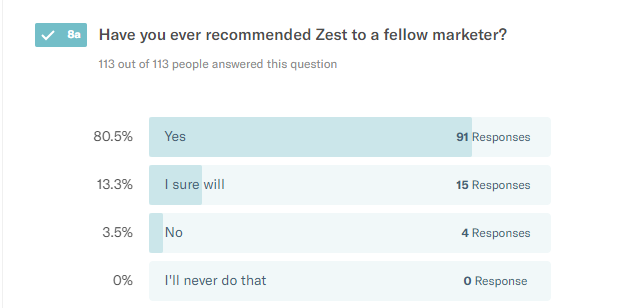
linkedin.com
4. What is the secret ingredient behind Zest’s success?
Without a doubt, the secret ingredient to Zest’s success is the Zest tribe (our users). I am a huge proponent of network effects and the power of community. Zest has managed to achieve its growth because of the strength of our community and their willingness to share their professional knowledge and expertise with their peers.
Paired with the strength of our community is the Zesteam’s determination to always add value. Our newest product, Zest Enlight doubles down on that commitment.
Zest Enlight is a pro version of Zest for mobile. Zest Enlight puts our users in control of their career development. After choosing their preferences, Zest Enlight users will be able to receive custom-selected, knowledge-building content about the marketing topics they choose and on the schedule they select. It takes self-learning and professional development to the next level.
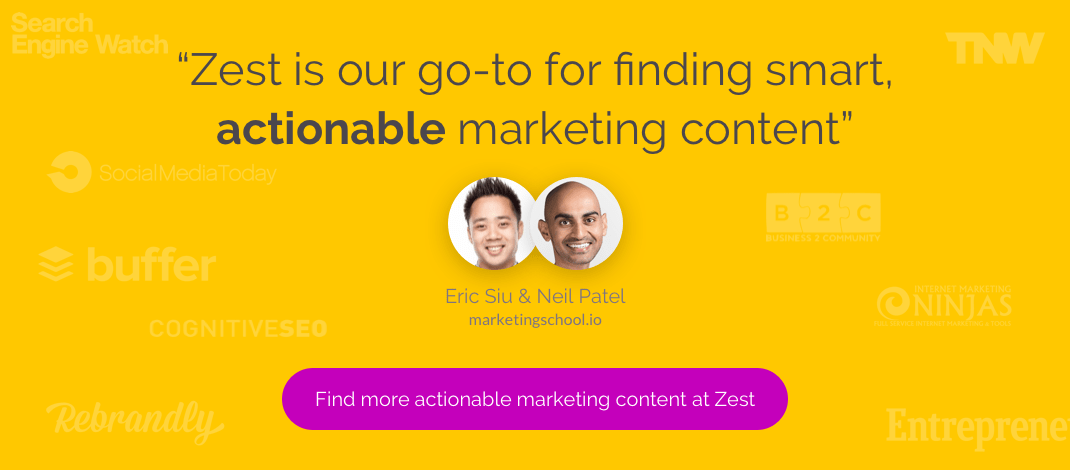
5. What is your advice for the aspiring or new startup founders?
My advice to aspiring startup founders anywhere is to keep learning, strive for continual improvement. Once you have perfected your vision and assembled your team, don’t rest. Continue to upskill, adding new areas of knowledge and expertise to your personal bank of resources. Surround yourself with others who are willing and eager to do the same.
When you bring your idea to investors, be prepared to answer their questions. Do your homework so that you are prepared to answer their questions. And don’t overlook the importance of aligning yourself with advisors, investors and team members whose attitudes and ideals match your company’s culture. It isn’t necessary for everyone involved with your startup to always agree. In fact, a healthy amount of disagreement will help you grow. But, everyone involved with your startup should share the same fundamental beliefs about what you are doing and how you’ll get there.
I also highly recommend that aspiring and new founders take advantage of every opportunity to learn from their peers. Either through face to face meetings or video calls, seek out other founders who have travelled the paths you are headed down and ask for their advice. Other founders understand your passion and the challenges of your journey and there are many who would love to meet with you to share their knowledge.
Join the Conversation
We’d love to hear what you have to say.
Get in touch with us on Facebook Group and Twitter.